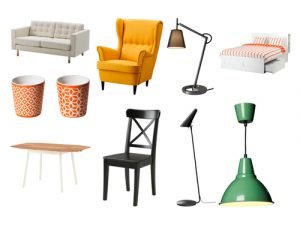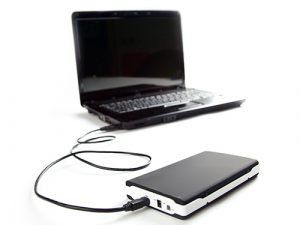Introduction:
I’m sure you’re familiar with the endless number of electronics available for purchase. From TVs to laptops, there are many companies to choose from if you want to buy home electronics. It’s important that you know what you’re looking for and not just rely on advertisements. The following information will help ensure that your next purchase is a good one:
Sourcing from reputable manufacturers:
Reputable manufacturers can be identified by their reputation and the number of years they have been in business. Reputable manufacturers are more likely to have a better quality product, as they take pride in what they produce. Same as reputable manufacturers you also need reputable property dealer for your house! They also tend to offer better customer service because they want you to come back and buy from them again!
Buying from reliable sellers:
Before you buy, it’s important to know the seller’s reputation. You can check online reviews from other customers who have purchased from the same company and read their experience with it.
If you are buying from an online store, then it is advisable that you check for the return policy of that particular store. This will help you decide if you want to go ahead with a purchase or not as sometimes items may be defective or damaged when they reach your doorstep.
Shipping policies also vary from place to place so make sure that these are clearly mentioned before making any purchases online or offline so that there is no confusion later on in case something goes wrong during transit between two parties involved (seller & buyer).
Payment methods include Visa/MasterCard/American Express cards as well as PayPal which allows users across different countries without having any physical presence! So don’t worry about being able to pay by using any particular type of card because most companies accept all forms available today which makes life easier overall when shopping around town.
Figuring out what you want to buy:
- Know what you want to buy.
- Find out more about the product before buying it.
- Get information from the manufacturer.
- Find out if the product is compatible with your device, needs, and budget.
Price is not the only criterion for selection:
You might be tempted to buy the cheapest product you can find, but there are several other factors that you should consider.
First and foremost is quality. If a product has a high-quality build and features, it’s going to last longer than something with shoddy construction or mediocre features (like less memory). You don’t want your TV breaking down just after the warranty expires, so make sure that any electronics you buy have good reviews and solid ratings on sites like Amazon or Newegg. Apart from checking the quality of the product you should also check your house’s electric connection and should go for any renovations if needed! Renovations are always important for your house be it your deck repair or any other!
Another important consideration is return policy: how easy will it be for me if I need my item replaced or repaired? You don’t want any surprises when purchasing home electronics–especially if they break shortly after purchase!
Finding the right price for your needs:
Before you start shopping for electronics, it’s important to have a budget in mind. The price of an item can vary widely depending on the quality of the product and where you buy it from. If you’re looking for something that will last a long time and work well with your home, then expect to pay more than if all you need is something cheap and disposable (like an alarm clock).
When negotiating prices with vendors or sellers, remember that they may be willing to negotiate even if they don’t advertise their products as having any kind of discount or sale price available. It never hurts to ask!
Finally, don’t forget about shipping costs when considering whether or not purchasing something will fit within your budget–some companies will offer free shipping while others charge extra fees based on weight or location; neither option is necessarily better than another so make sure both options are considered before making any decision about buying online versus visiting local stores.
Choose an authorized dealer:
When you are looking for a home electronics dealer, make sure that they are authorized to sell the product. Check if your preferred dealer is listed on the manufacturer’s website as an authorized reseller of their products.
You should also be wary of buying from unlisted dealers or shops who claim to be selling authentic goods but actually sell counterfeits instead. Counterfeiters often advertise themselves as “authorized” because this gives them legitimacy in the eyes of unsuspecting customers who may not know any better–and would rather not take time out of their busy schedules to do research before purchasing something online or in person at a store location (which could be anywhere from local businesses like Best Buy or Walmart all the way up through multinational corporations like Samsung). If you’re unsure whether something is genuine, check with reputable third-party websites such as Consumer Reports and UL before making any purchases so that you can feel confident about what exactly it is that you’re getting yourself into!
Realize the difference between original and fake products:
When you’re buying electronics, it’s important to know the difference between original and fake products. Original products are made by the company that created them–for example, Apple makes iPhones; Samsung makes Galaxy phones. These companies have a reputation for high quality products and customer service.
Fake electronics are often cheaper than their authentic counterparts because they’re made by companies that aren’t authorized to sell those brands’ merchandise (think counterfeit handbags or fake designer jeans). However, these knockoffs might not work as well as their genuine counterparts–or at all!
Always ask for a quote before making any purchase:
When you are buying home electronics, it is always advisable to ask for a quote before making any purchase. A quote will help you know what the cost of the product is, as well as other charges such as shipping and handling. You can use this quote to bargain with the seller if he or she doesn’t agree on your price range.
Cancellation Policy:
The cancellation policy is the time period you have to cancel your order. It’s different for each seller and it can also change depending on the product you ordered. Some sellers will let you cancel your order within 24 hours, while others give you up to seven days or even longer (but no more than 30 days).
Warranties and servicing:
- Warranties are important.
- Warranties are not always available.
How to check for a warranty before purchase:
- Check the manufacturer’s website or call customer support directly to see if the product has a warranty.
- If you can’t find it online, ask an employee at the store where you purchased your item (if they don’t know what “warranty” means in this context or aren’t able or willing to help, go elsewhere).
Delivery time:
Delivery time depends on the product and seller. Usually, delivery time is not more than a week. However, it’s best to ask for the delivery date in your order through our messaging system. If you need the product urgently, you can always pay extra for express delivery by choosing an expedited shipping option at checkout
Conclusion
We hope that this article has helped you understand the basics of sourcing home electronics. It may seem like a daunting task at first, but if you keep these things in mind, you’ll be able to make a more informed decision about what products are best for your needs–and save money in the process!








